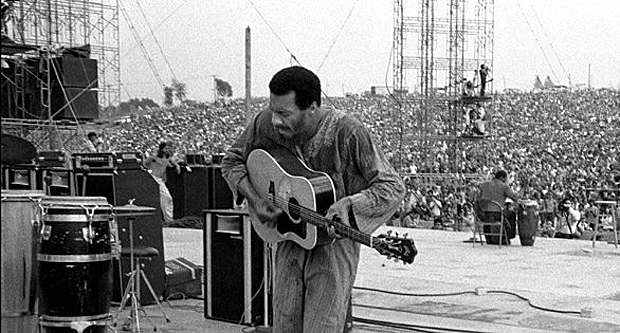
Of all the iconic performances that took place at Woodstock during its era-defining “3 Days of Peace & Music,” 32 acts in total, perhaps none was as singularly identifiable with the event, as historically significant for truly capturing the zeitgeist of the counter-culture moment, as Richie Havens’ classic rendition of his song ‘Freedom.’ Guess how many times Havens had played it before that day. Answer? None. Well then, he debuted the song there, but how long prior to Woodstock would you guess Havens had composed it, rehearsed it, and worked it all out in preparation for this unveiling in front of an audience of more than 400,000? That answer? Not one second. He created it on the spot. While on stage. Just let that sink in; simply incredible.
Richie Havens was the first artist to appear at Woodstock, August 15, 1969 at 5:07PM. He was not scheduled to be, he was just the only musician there at the time. Unforeseen and unfathomable crowds on a pilgrimage to the concert site in Bethel, NY had completely shut down local roads for miles around. Bands had arrived into town, but were effectively marooned in nearby hotels, unable to reach the venue.¹ But then, as promoters made announcements that the show’s start would have to be delayed, Richie Havens, like a kaftan-garbed apparition, showed up. A Woodstock production manager greeted him:
Producer: “Richie, please go on now”
Havens: “But I’m not scheduled to go on until much later”
Producer: “Richie, we don’t have anybody else”
Havens ascended the stage, staring out at the endless sea of hippie humanity, having previously played almost exclusively to small folk club audiences in New York City’s Greenwich village. He had an acoustic guitar, and was accompanied by a bongo player (his bassist could not be found). Reports vary of just how long Havens played – he has recalled it to be nearly three hours, though unofficial concert timelines tracked it somewhere between 50 and 110 minutes. Regardless, he was up there, perched on a solitary wooden stool, for quite a while. Said Havens, “I was on stage for something like two or three hours…because nobody else was there to go on. I did about 4 or 5 encores, ‘til I had nothing else to sing.” And so, he ad-libbed. “And then ‘Freedom’ was created right there on the stage. That’s how ‘Freedom’ was created. On stage. It was the last thing I could think of to sing. I made it up.”
There were countless, what I’d consider to be, miracles that materialized in order to allow Woodstock to happen and ultimately become what it did: for a site to have been agreed upon in Wallkill, NY (it was never going to take place in Woodstock), only to be revoked, with a subsequent new location in Bethel first identified mere weeks before the event date, and final approvals granted as late as August 2nd; for a veritable functioning city to emerge on an undeveloped dairy farm in upstate New York; for it to have attracted what was initially targeted as no more than 50,000 people but eventually grew to be over 400,000; for an “Aquarian Exposition” (as it was billed) to be held incorporating dozens of the biggest names in rock music of the time, and of all time; for it to all have been conceived, created, and pulled off by a couple of 20-something friends and entrepreneurs (Joel Rosenman and John Roberts) with absolutely no prior experience hosting live entertainment events of any size; and amidst drenching rainstorms, shortages in food and medical supplies, and a general sense of teetering chaos, for it to have occurred in striking, remarkable peace² – in sum, kind of the point of the entire thing in the first place. Miracles, all. Add to those, for certain, the fact that a song which came to embody the spirit of the event, and of the era, at a showcase which would become universally regarded as a pivotal moment in popular music history, was a completely unplanned, utter improvisation. For that we have to thank a whole lot of traffic, maybe some groovy, flower-power vibes, and one Richie Havens.
¹they would soon be air-lifted in by helicopters, shuttled from nearby Stewart Air Force base
²there were but two fatalities recorded, one from insulin usage, and another caused when a tractor ran over someone sleeping in a nearby hayfield
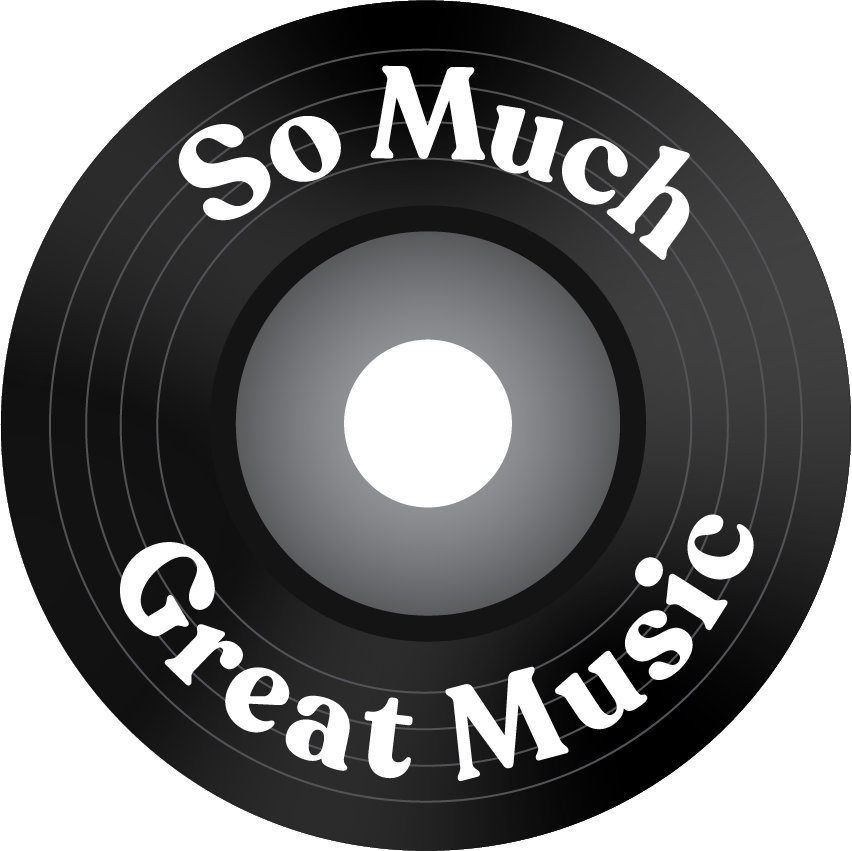


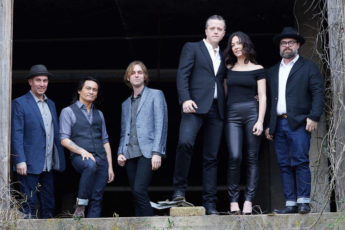
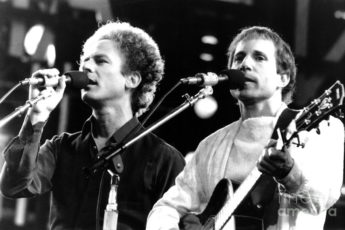
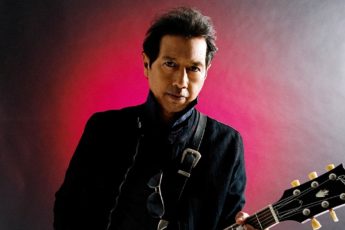
Greg
April 19, 2020 11:16 amGood one.